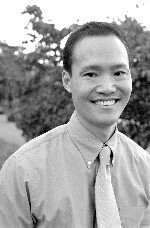DRHOOK- Tell all: Can patients know too much?

Fame suits me well. I was shopping at Whole Foods, and between picking the yum-yummiest vegan General Tso's "Chicken" and some apples, a few fans stopped me. The first said, "I saw you speak at our conference, and I just loved you! I don't remember what you talked about, but..." The next person said, "I know you! You are that TV doc, Dr. Chan!" (Do I look like Charlie Chan?)
Then one lady said, "I read your article on migraines, and you didn't mention that diet can affect migraines." Well, howdy-doody-do to you too! I told her that she was absolutely right, and that all my articles are incomplete because I don't have the space (and time) to include everything.
Then she said what many patients and fans have said to me over the years, "Doctors are so apt to prescribe a medicine instead of looking for other alternatives."
She researched migraines and found certain foods precipitate them. I said, "Like chocolate, wine, cheese..." Her migraines are gone now, so her research paid off.
Should you do your own research? Do you really want to know everything?
Barbra Streisand sang in a movie that the more she learned, the more she realized how little she knew. This is so unbelievably true, as I learned during my year of taking collage physical chemistry– and years of watching Entertainment Tonight.
I understand patients don't get to learn a whole lot during their 15-minute office visit with the doctor. If every office visit were like a pharmaceutical commercial on TV, patients would never get their prescriptions, because naming every side effect would suck the life out of the doctor: "Side effects include death, wrinkles, and enjoying The O'Reilly Factor."
Most doctors know what the side effects of medicine are. And the medicine wouldn't be prescribed if the benefits didn't outweigh the possible negatives. As I tell my patients, life has side effects as well... which is why you're having the headache, high sugars, or angina.
So maybe medicine and lifestyle changes will be useful.
When a patient picks up a medicine, an information sheet is provided. To me, it's like the paperwork involved in buying a house. My lawyer suggests that I should read all the fine print, but, frankly, I don't care to read it. I don't get all the Latin jargon. And mostly, I trust my lawyer to act in my best interests. He just tells me what I'm signing, and I sign it.
Reading all the side effects on the drug information sheet makes some patients run for the hills. Even when folks taking placebo (a sugar pill containing no medicine) are reported to have the same side effects as those taking the real medicine, some believe the medicine is dangerous.
I have some patients and readers over-reacting to what they read or hear. "Maybe I have weight gain because of my blood pressure medicine." Could it be because you don't exercise, you drive your car from one end of the Downtown Mall to the other, and you drink beer by the case?
"No, it has to be the pill!" Hmmm.
I have had some people who claim their illness is a hidden disease that the US government and American Medical Association won't let the public know about. (Watching too many episodes of Lost or X-Files?)
It's impossible to know everything about one's health or about medicines, foods, or herbs. Like choosing your spouse, your college, or your house, major decisions are often without all the necessary information. Sometimes it comes down to trust.
But then, I've heard, "Trust in a higher power, but still tie your horse to a post."
~
Dr. Hook cracks a joke or two, but he's a renowned physician with a local practice. Email him with your questions.
#